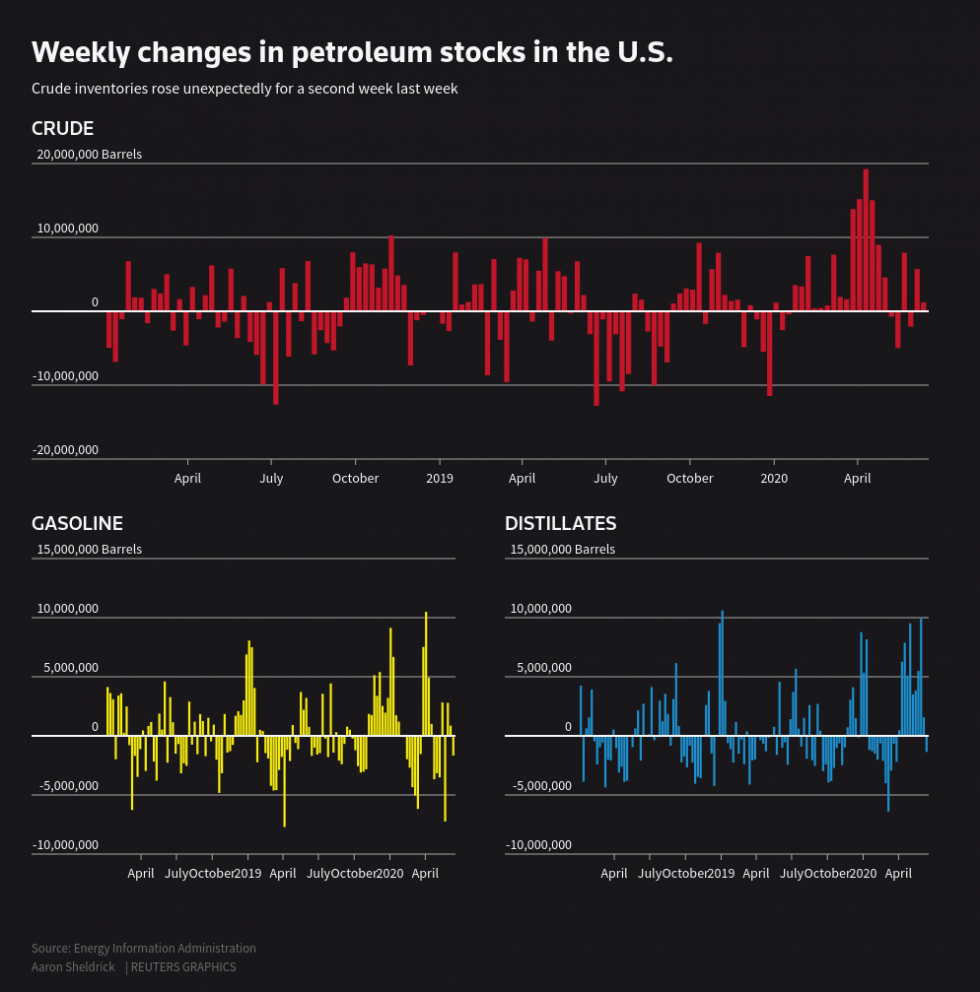
Plans by Iraq and Kazakhstan to make up for overproduction in May on their supply cut commitments supported the market
MELBOURNE/TOKYO (Reuters) - Oil prices rose around 1% on Friday, adding to gains in the previous session, after OPEC producers and allies promised to meet commitments on cutting supply and two major oil traders said demand was recovering well.
Brent crude LCOc1 futures rose 35 cents, or 0.8%, to $41.86 a barrel by 0446 GMT. U.S. West Texas Intermediate (WTI) crude CLc1 futures climbed 38 cents, or 1%, to $39.22 a barrel. Both contracts rose around 2% on Thursday and are heading for weekly gains of 8%.
Plans by Iraq and Kazakhstan to make up for overproduction in May on their supply cut commitments supported the market. The promises came out of a meeting by a panel monitoring compliance by the Organization of Petroleum Exporting Countries and its allies, a grouping called OPEC+.
If the laggard producers do compensate over the next three months for their overproduction, that will effectively take extra barrels out of the market, even if OPEC+ does not extend its record 9.7 million barrels per day supply cut beyond July.
Near-term optimism around those make-up supply cuts easing pressure on storage helped tip Brent into ‘backwardation’ on Thursday for the first time since early March, with the August contract rising to 9 cents above September LCOc1-LCOc2 on Friday.
Backwardation occurs when near-term contracts are trading at higher prices than outer months, due to abnormal circumstances. Normally oil futures trade in ‘contango’, with the outer months at higher prices, reflecting the cost of holding oil.
Fears about dwindling storage capacity had sent the market into steep contango, as wide as $5, as coronavirus lockdowns hit demand and Saudi Arabia and Russia glutted the market with crude in April.
“The supply cuts that they’ve (OPEC+) implemented and with other members like Iraq proposing to make up for the lack of adherence to the agreement in May and June does tighten up the market in the shorter term,” said ANZ senior commodity strategist Daniel HYNES.
“But it’s not a strong signal of a wholesale shift in the medium term outlook in the market.”
Comments from global oil traders Vitol and Trafigura on a rebound in oil demand in June, reported by Bloomberg, also buoyed the market, ANZ said.
Traders shrugged off another build in U.S. crude inventories to a new record. Crude stocks USOILC=ECI rose by 1.2 million barrels last week to 539.3 million barrels, compared with expectations from a Reuters poll for a decline of 152,000 barrels. [EIA/S]
For a graphic on Weekly changes in petroleum stocks in the U.S.:
On the technical side, CMC Markets chief strategist Michael McCARTHY pointed to strong resistance in the WTI contract between $40 and $41. Analysts see that level as the point at which more U.S. producers will revive shut-in wells.
“That militates against aggressive long side trading,” McCarthy said.
Photo: novosti.az.










